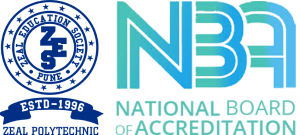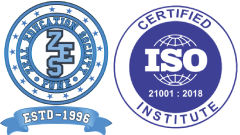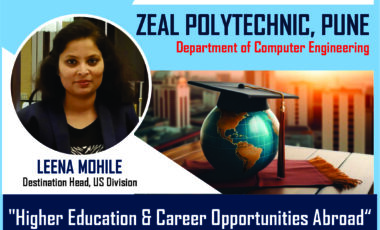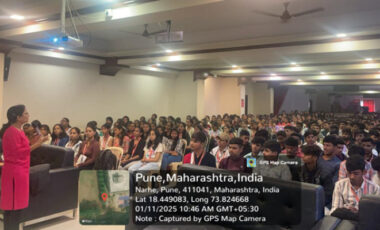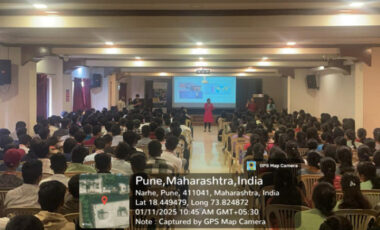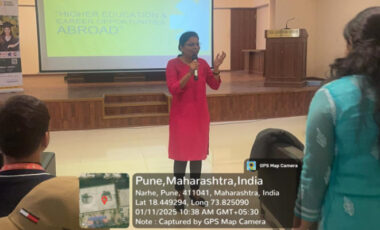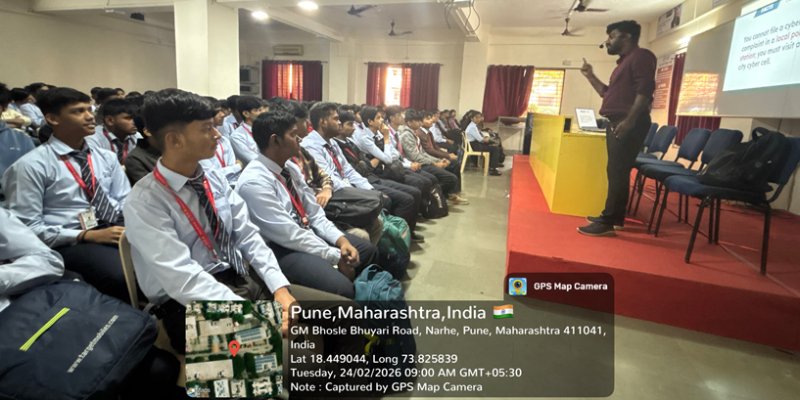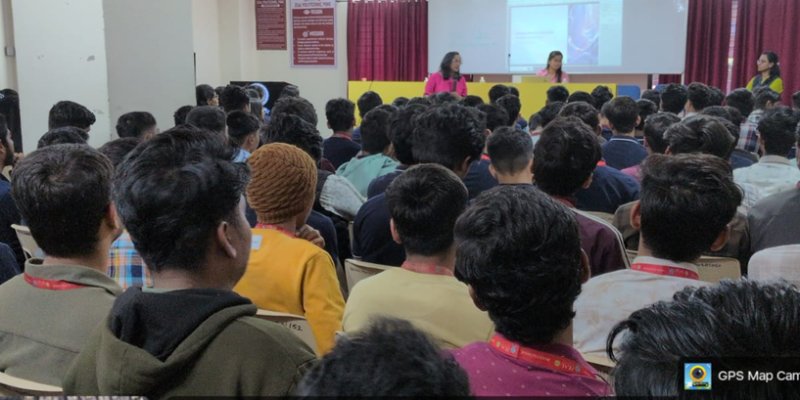Resource Person/ Facilitator: Ms. Leena Mohile, Destination Head US Division.
Summary/ Report:
The expert talk on “Higher Education & Career Opportunities Abroad” aimed to provide valuable insights into the prospects and challenges of pursuing education and building a career internationally. The session addressed various aspects of studying abroad, including choosing the right country, understanding academic systems, the application process, funding options, and career opportunities post-graduation.
Key Topics Covered:
1. Why Study Abroad?
The speaker emphasized the growing importance of a global education and how studying abroad can expand one’s horizons both academically and culturally. The value of international exposure in today’s interconnected world was discussed in detail.
2. Popular Study Destinations:
Countries like the United States, United Kingdom, Canada, Australia, and Germany were highlighted as top destinations for higher education. The speaker compared these nations in terms of quality of education, cost of living, visa regulations, and post-graduation work opportunities.
3. Choosing the Right Course and Institution:
Guidance was provided on how students can identify their areas of interest and select the right course and university. The importance of researching institutions, reviewing course syllabi, faculty expertise, and campus facilities was stressed.
4. Application Process:
The speaker explained the typical application process for universities abroad, which often includes standardized tests (e.g., GRE, GMAT, IELTS, TOEFL), personal statements, letters of recommendation, and application fees. Tips for crafting a strong application and maximizing chances of acceptance were shared.
5. Scholarships and Financial Aid:
The topic of funding higher education abroad was extensively covered. Scholarships, grants, and loans available for international students were discussed. The speaker provided information on how students can apply for financial assistance and manage costs effectively while studying abroad.
6. Visa and Immigration:
Visa regulations and requirements were outlined for popular destinations. The speaker emphasized the importance of maintaining legal status as an international student and adhering to work-hour restrictions during studies.
7. Career Opportunities After Graduation:
A significant portion of the talk focused on career opportunities available to international students after completing their studies. The speaker discussed work permits, internship programs, and post-graduate employment prospects in various countries. Networking, leveraging university career centers, and attending job fairs were suggested as effective strategies.
8. Challenges of Studying Abroad:
The challenges, such as homesickness, cultural adaptation, and managing academic pressures, were also discussed. The importance of developing resilience and seeking support from university counseling services or student networks was emphasized.
